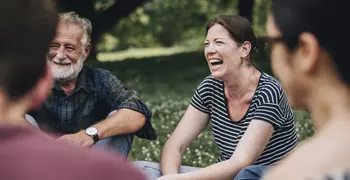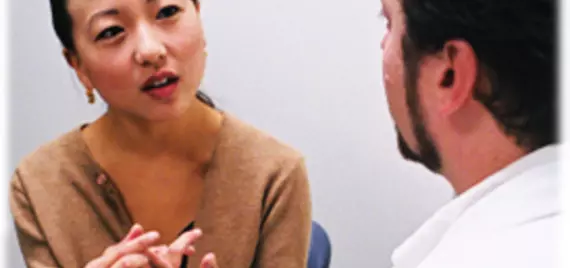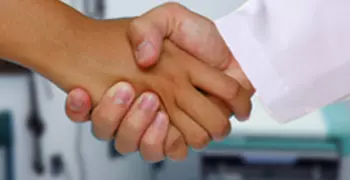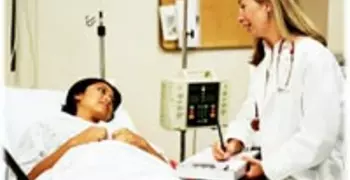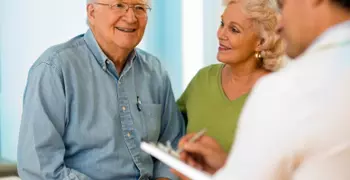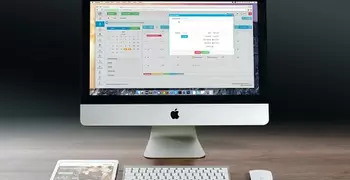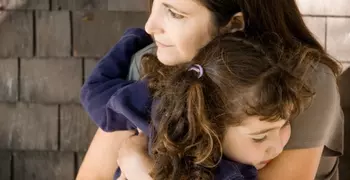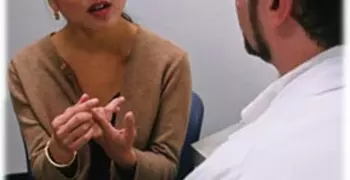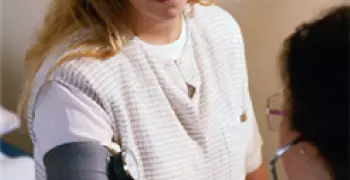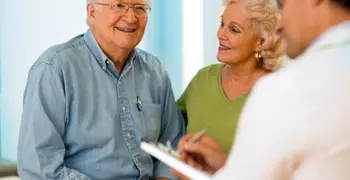Get Help from Others
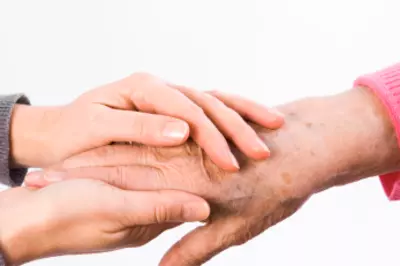
 When people are diagnosed with a life-altering illness, such as diabetes or cancer, or depression, it can be overwhelming. They need information and support, especially from someone who has been there. Ask your providers if they know of a support group for people with your condition. Check with the hospitals in town as well as health associations, such as the American Cancer Society.
When people are diagnosed with a life-altering illness, such as diabetes or cancer, or depression, it can be overwhelming. They need information and support, especially from someone who has been there. Ask your providers if they know of a support group for people with your condition. Check with the hospitals in town as well as health associations, such as the American Cancer Society.
Another great resource, regardless of where you live, is an online social networking site centered around health issues. You can access these websites from anywhere, whenever you have a question or could use some support.
What is an online social network?
Online social networks are websites that provide a forum for people to share their experiences with others. Many social networks provide message boards, chat forums, and other communication tools for their members to connect. In social networks organized around health issues, members discuss their experiences, such as side effects and symptoms and offer one another advice and support
How can an online social network help you?
Online social networks aim to connect individuals, regardless of location. One e-patient remarked, "I live in a small town, and it is helpful to be able to use the internet to find others that have the same anxiety disorder I do." Social networks give individuals with health questions access to a much broader spectrum of people, which provides many benefits.
Provide a place to get (and offer) support
 Karen Parles was only 38 when she was diagnosed with advanced lung cancer. She turned to the internet for support and found the Association of Cancer Online Resources (ACOR). "The patients on the list answered my questions, suggested useful sites, and gave me a lot of valuable support," Karen says. "I can't overemphasize the importance of their help in those early weeks and months. It gave me instant access to the wisdom and experience of hundreds of other lung cancer patients."
Karen Parles was only 38 when she was diagnosed with advanced lung cancer. She turned to the internet for support and found the Association of Cancer Online Resources (ACOR). "The patients on the list answered my questions, suggested useful sites, and gave me a lot of valuable support," Karen says. "I can't overemphasize the importance of their help in those early weeks and months. It gave me instant access to the wisdom and experience of hundreds of other lung cancer patients."
PatientsLikeMe is a website that connects patients of various life-changing conditions in the hopes of answering this question: "Given my status, what is the best outcome I can hope to achieve, and how do I get there?" Members can create a health profile that helps them find other patients with the same diagnosis. The site offers members the ability to discuss treatments, compare progress with other patients, and develop relationships with people who understand the experience of having a life-changing condition.
A study done in 2010 found that the site helps its participants. Nearly half of these participants found another patient to whom they could connect about treatment, 41% of HIV patients reported decreasing risky behaviors, and 22% of mood disorder patients reported needing less inpatient care as a result of using the site.
Provide a forum to share hospital and healthcare provider information
After Gilles Frydman's wife was diagnosed with breast cancer, he headed straight for the computer: "As soon as I got home, I went online, found a mailing list for breast cancer, and jumped right into the conversation: 'This is what our doctor recommends. Is this reasonable?' The answers to my questions came flooding back. After four hours, I knew that this was a complex type of cancer, for which an expert reading of the pathology was particularly important. Group members mentioned the two top pathology experts in the country. One of those experts just happened to be in New York where we reside."
Bonnie's story

Bonnie's story is an example of how you could use online communities to get emotional support and additional information and resources.
The diagnosis
Bonnie was floored when her doctor told her that she had lung cancer. She'd never smoked in her life, and until a nagging cold developed and wouldn't seem to go away, Bonnie had felt perfectly healthy her whole life.
Though her friends were supportive, "I found myself wanting to talk to people in my situation," she said. "I wanted to hear their stories and share mine."
Getting information
Through a search engine Bonnie found Lung Cancer Online, a website dedicated to improving the quality of life for people with lung cancer by providing a directory of resources, research, and support communities.
The first part of the website she clicked on was "Treatment Options." After her doctor recommended chemotherapy, Bonnie realized she had a number of questions. The website offered an extensive list of conventional and experimental treatments, which linked to case studies and abstracts about each option. Bonnie felt overwhelmed: "What I was really looking for was an answer to the question, 'How am I going to feel?'"
Finding an online community
Through a link on Lung Cancer Online, Bonnie found an online support community for lung cancer patients at ACOR. She created a username and password and logged on.
"Right away I felt more comfortable," Bonnie said. "The other members welcomed me as if they'd known me for years. When I asked who was going through chemotherapy right now, several people sent me detailed messages about which drugs they were using and how they were handling it. I felt much more prepared to undergo treatment myself."
The chemotherapy treatments left Bonnie feeling nauseous and dry-mouthed. A friend on the online community recommended eating fresh pineapple to keep her mouth moist. Another swore by acupuncture to help beat the nausea. These conversations not only gave Bonnie practical advice in dealing with the side effects of her treatment, they also reminded her that she wasn't alone in her illness.
Giving back
Now Bonnie is in remission, but she stays in touch with the online community. When new members join and ask questions, she sends them her story. "I know what it feels like that first day, when you find out your diagnosis and you don't know who to turn to. Because of these online communities, there's no need to feel isolated in your condition anymore. There's always someone who's willing to listen."
Provide moral support for goal achievement/adherence
 We all share the human tendency to act against what we know is best for us. (Aristotle even had a term for it—akrasia.) This is especially common when it comes to managing our own health—we know we should exercise, but we skip the gym; we know smoking is bad for us, but we light one up anyway. One of the only ways we can change this behavior is to make ourselves accountable to other people.We will be more likely to go for a run if we have a friend to go with us, and we're less likely to smoke if our partner is trying to quit, too.
We all share the human tendency to act against what we know is best for us. (Aristotle even had a term for it—akrasia.) This is especially common when it comes to managing our own health—we know we should exercise, but we skip the gym; we know smoking is bad for us, but we light one up anyway. One of the only ways we can change this behavior is to make ourselves accountable to other people.We will be more likely to go for a run if we have a friend to go with us, and we're less likely to smoke if our partner is trying to quit, too.
Online social networks can create the community we need to adhere to our goals. For example, runners use the Nike+ site to offer one another encouragement and support in their training. Other people use Twitter or Facebook to post weight loss or other health-related progress notes. The positive feedback from other people online and the accountability that comes from making our commitments known to others can help keep us on track.
What kinds of things should I watch out for?
- Make sure it's clear who runs the site. Is it a patient? A doctor? A nonprofit organization? Read their privacy policy to ensure that your health information will stay private. Check out the criteria in Get the e-Facts to assess if the site is trustworthy.
- Don't give out personal information on the internet. You might start a free email account that you use only for communication with members of your network.
- Always double-check advice given to you online. Check any health advice with a healthcare provider.
- Be especially careful if you are joining a social network around mental health issues, such as depression or eating disorders. Make sure the people participating on the site are interested in healing and not perpetrating the illness.
- Avoid joining too many networks at once. The stress of so many new relationships at once can counteract the benefits of finding a new community.
Social networks to try
Cancer
www.lungcanceronline.org (founded by Karen Parles)
